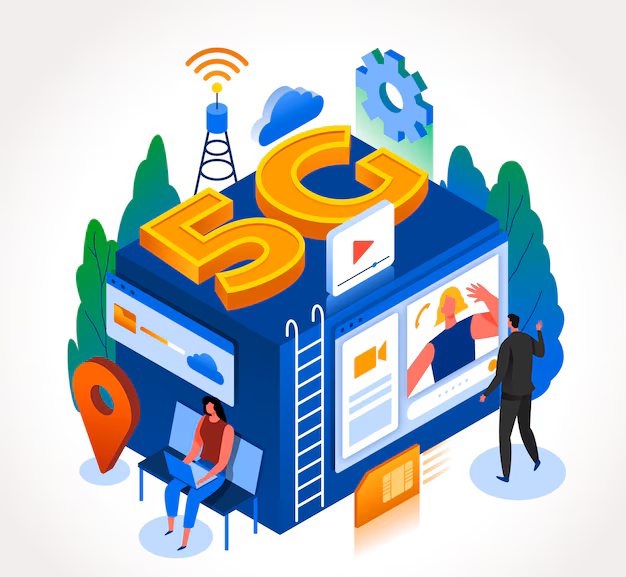Address
Work Hours
Monday to Friday: 9:00 AM - 6:00 PM
Address
Work Hours
Monday to Friday: 9:00 AM - 6:00 PM
The arrival of 5G technology is reshaping the IT industry in unprecedented ways. With its ultra-fast speed, low latency, and massive connectivity, 5G is enabling innovations across multiple sectors, leading to new job opportunities and skill requirements. IT professionals need to adapt to these changes to remain competitive. Additionally, the integration of 5G with AI, machine learning, and automation is further enhancing IT roles, necessitating a deeper understanding of emerging technologies. As businesses adopt 5G and IT careers powered solutions, IT professionals must also focus on developing skills in networks. Here’s how 5G is revolutionizing IT careers.

The rollout of 5G networks is creating a multitude of new career opportunities throughout the IT industry. Businesses are seeking experts in network engineering, software-defined networking, and radio frequency engineering. Furthermore, experts in AI-optimized network optimization, 5G infrastructure deployment, and cloud-native applications will be in demand. As 5G empowers smart cities, autonomous cars, and industrial automation, IT professionals will also have to work with other sectors to create new-age solutions. In addition, telecommunications companies will need IT experts for spectrum management, network slicing, and virtualization. Upgrading in these domains can unlock high-paying career opportunities, which is why IT employees must keep pace.
As 5G grows, so do the associated cybersecurity threats. With billions of connected devices, the attack surface for cyber attackers is greatly amplified. IT security experts will need to create new methods of protecting data, networks, and devices from advanced cyber threats. Professions like cybersecurity analysts, ethical hackers, and security architects will be in greater demand. Organizations will require professionals who can protect 5G network protocols, detect vulnerabilities within edge computing, and apply zero-trust security models. AI and machine learning will also be instrumental in threat detection and prevention, so cybersecurity professionals will need to learn more about these fields. Keeping up with cybersecurity in the 5G age will take constant learning and being agile.
5G is speeding up the use of cloud computing through quicker data transfer and remote access without any interruption. Cloud infrastructure, DevOps, and cloud security professionals will see a rise in demand for their expertise as companies move towards cloud-native architecture.
With 5G’s low latency and high-speed data transfer, companies can implement real-time applications and enhance the effectiveness of cloud services. Multi-access edge computing (MEC) is becoming a reality, enabling data to be processed near the source instead of depending on centralized cloud servers. This change will necessitate IT professionals to acquire skills in edge cloud management, hybrid cloud planning, and 5G-enabled application development. Transitioning to these changes will create new career development opportunities in the cloud computing ecosystem.
Edge computing is turning out to be a game-changer in the era of 5G by enabling data to be processed at network edges instead of data centers. This minimizes latency and enhances real-time decision-making, which is important for applications such as autonomous vehicles, smart manufacturing, and remote healthcare.
For IT professionals, it will translate to more demand for skills in managing edge infrastructure, processing data in real-time, and distributed computing architectures. Edge applications specialists, system architects, and data engineers will have challenging career opportunities. An understanding of containerization platforms, including Kubernetes and Docker, will also be needed to handle distributed workloads in an efficient manner. IT professionals need to adapt to these emerging technologies in order to be relevant in the new job landscape.
5G is a trigger for the accelerating growth of the Internet of Things (IoT), linking hundreds of millions of devices with very little latency and maximum performance. IT professionals employed in IoT creation, network administration, and embedded systems will enjoy growing demand for their skills.
With smart homes, industrial IoT, and connected healthcare on the rise, IT jobs will shift to concentrate on IoT security, sensor integration, and data analytics. Network engineers will need to handle large-scale IoT deployments, while software developers will have to develop scalable applications that take advantage of 5G connectivity. Data analysts will also be important in deriving insights from enormous IoT datasets, enabling businesses to optimize operations. Building skills in IoT connectivity solutions and architecture will be the backbone for moving forward in this domain.
The advent of 5G is ushering in revolutionary shifts in IT careers, developing new job descriptions and transforming skill sets. Individuals who remain current with burgeoning technologies like cybersecurity, cloud, edge computing, and IoT will be in a better place to succeed in this changing environment. Upskilling and lifelong learning will be essential in unlocking the complete potential of 5G and ensuring a prosperous future in the IT sector.
NOTE:- For more TECHNOLOGY related knowledge, visit Daily Liv India.
Images sourced from Freepik.